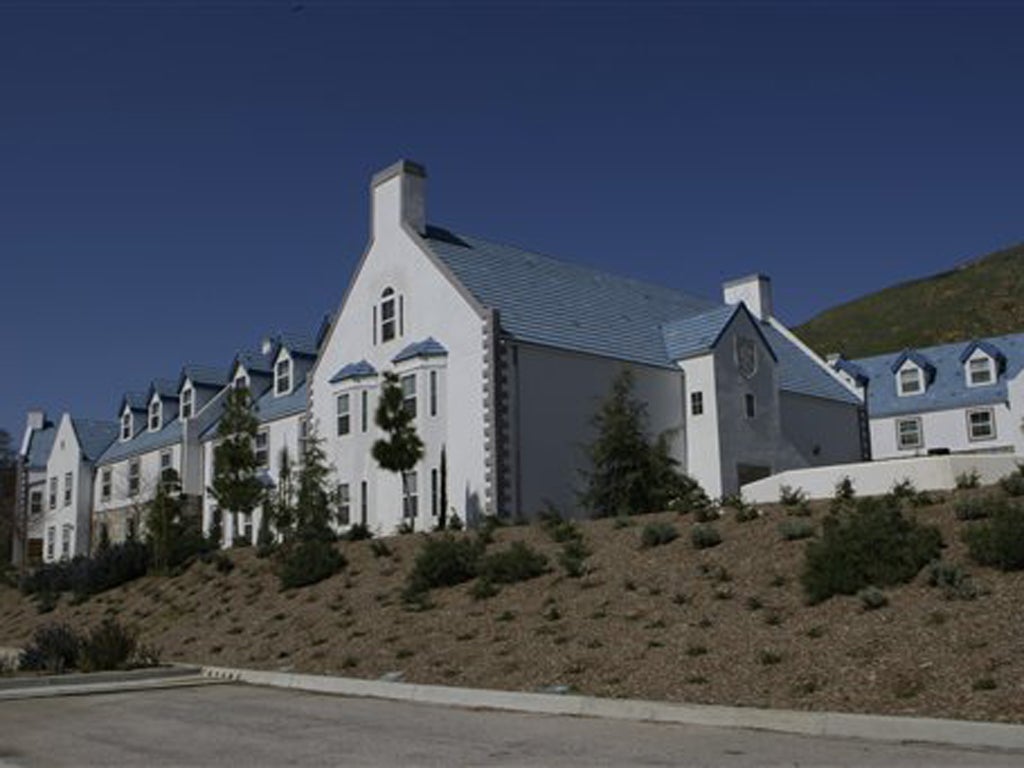Make jokes about Thetans and Xenu if you must. Have a good laugh at John Travolta's film Battlefield Earth if you absolutely have to. But don't expect to poke fun at L Ron Hubbard's legacy without getting an almighty roasting from the Church of Scientology's PR department.
The Church has launched a new offensive against its critics in the US media, accusing an author who attempted to lift the lid on secrets of a $42,000-a-year boarding school it runs in rural Oregon of making "a number of false claims" about the institution and its teaching methods.
Benjamin Carlson's two-part series on Delphian School, which has about 250 teenage students, made headlines last week when it described how teachers there follow a curriculum designed around "Study Technology", a controversial teaching method designed by Mr Hubbard in the 1960s.
The articles, published in The Daily, alleged that roughly half the children at Delphian are practising Scientologists, and that "the structure of the school, its ethical code, and its language all reflect the influence and precepts" of the science-fiction author's religion.
Delphian markets itself as a real-life version of Hogwarts, the school from the Harry Potter books. A video on its website features a student saying "You know, it's on a hill, and I'm a big Harry Potter fan ...You've got the Forbidden Forest out there, it's like, awesome."
According to former students interviewed by Carlson, the school has strict rules on alcohol, drugs and PDAs, or public displays of affection, between students. The institution's ethical code is enforced by a brigade of prefects called "rovers".
Miscreants who break those rules are named and shamed on a list which hangs outside the door of a member of staff called the "ethics officer". In another cute example of Potteresque boarding school slang, the sheet of paper is known as the "Golden Rod".
Carlson's articles further allege that Delphian, which was founded in the 1970s and boasts Tom Cruise and Nicole Kidman's daughter among its alumni, is in the final stages of becoming a member of the Pacific Northwest Association of Independent Schools.
That would be controversial, since the "Study Technology" its curriculum is designed around is somewhat unconventional. Indeed, according to Carlson, it revolves around the theory that "all educational problems arise from misunderstood words".
Delphian students are therefore required to devote large portions of study time to looking up words as basic as "the" in a dictionary, he alleges. They must also take part in "training routines" which involve such exercises as staring into a study-partner's face for two straight hours.
The Church of Scientology claims Carlson's portrayal of "Study Technology" is misleading, however. It insists that since the technique was developed by Hubbard the 1960s, it has been widely endorsed by experts. "[It] has become a worldwide phenomenon for the fact it routinely raises reading and comprehension levels to a remarkable degree," said a spokesman.
The Church further accused Carlson of misrepresenting "Sea Organisation", the Scientology labour corps where many Delphian students enrol after graduation. Allegations that the organisation is being investigated for human trafficking or slavery are false and defamatory, it insists.
"The two-part series... made a number of false claims concerning the Church of Scientology, yet not once did the author of the series, Benjamin Carlson, contact the Church for any comments," reads the statement. "Consequently, the article contains inaccuracies about the Church."
A spokesman for The Daily said last night: "We stand by our story."
Subscribe to Independent Premium to bookmark this article
Want to bookmark your favourite articles and stories to read or reference later? Start your Independent Premium subscription today.


Join our commenting forum
Join thought-provoking conversations, follow other Independent readers and see their replies